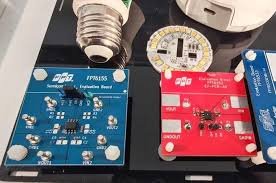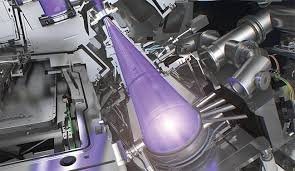Canaan and Aurora AZ Launch Pilot Project Converting Flared Natural Gas into Low-Cost Power for High-Density Computing
Modular gas-to-compute system in Alberta to provide 2.5 MW of on-site computing while cutting 12,000–14,000 metric tons of CO₂-equivalent emissions annually — advancing sustainable, off-grid energy solutions for bitcoin mining and AI workloads.
Strategic initiative to convert flared natural gas into low-cost power for high-density computing Scalable low-cost natural gas power model designed to strengthen mining economics
Annual reduction of approximately 12,000–14,000 metric tons of CO₂-equivalent emissions expected
- Canaan Inc. (NASDAQ: CAN) ("Canaan" or the "Company"), an innovator in crypto mining, announced the launch of a pilot mining project in Calgary, Alberta, Canada, through a joint mining agreement with Aurora AZ Energy Ltd., a Calgary-based energy infrastructure company that develops and operates natural gas wellhead power solutions for HPC/AI data centers and bitcoin mining applications. This gas-to-computing initiative is designed to convert distributed natural gas resources – such as wellhead gas – into reliable, cost-efficient power for high-density computing environments. The project is designed to demonstrate high uptime and modular scalability. Under the agreement, Canaan is guaranteed 90% uptime, subject to limited exemptions, including extreme weather conditions and scheduled gas well or generator maintenance.
The project will pilot a fully integrated gas-to-compute system that connects natural gas extraction, power generation, and computing operations within a single modular architecture. The deployment includes over $2 million of Avalon® A15 Pro miners and containerized data modules from Canaan that will be installed directly at wellheads. Through Aurora's on-site energy operations, stranded or flared gas will be converted into usable electricity at power costs well below industry norms. During periods of curtailment, Canaan will also participate in the economic benefits of selling excess power back to the grid through emergency or economic demand-response programs.
The Company expects that the deployment of 700 Avalon A15 Pro units will provide approximately 2.5 megawatts (MW) of computing capacity directly at the wellhead. By utilizing natural gas that would otherwise be flared, the project is expected to eliminate an estimated 12,000 to 14,000 metric tons of CO₂-equivalent emissions annually and demonstrates how responsible energy reuse can align environmental benefits with strong project-level economics.
In addition to reducing greenhouse gas emissions by mitigating flaring, this decentralized approach provides an off-grid, self-sustaining power solution for compute-intensive workloads. By generating localized energy, the model reduces strain on existing grids and frees up conventional electricity resources for other critical sectors, including HPC and AI data centers, industries that are rapidly expanding their energy demand profiles.
"This initiative represents a major step in demonstrating how computing infrastructure can evolve alongside energy innovation," said Nangeng Zhang, chairman and CEO of Canaan. "High-density computing – whether for bitcoin mining, AI inference, or HPC workloads – requires scalable and energy-efficient power architectures. By integrating localized natural gas generation with our modular computing systems, we are transforming previously wasted resources into productive energy with the potential to power the next generation of distributed AI infrastructure."
Canada provides an ideal environment for the pilot with its stable regulatory framework and rich natural gas reserves. In 2024, the province of Alberta alone flared more than 900 million cubic meters of natural gas, according to the Alberta Energy Regulator (AER), representing a significant opportunity for energy recovery and repurposing.
"This initiative to convert wellhead power into computing power is made possible by combining our capabilities in energy infrastructure with Canaan's expertise in high-density computing," said Jing Shan Zhou, CEO of Aurora AZ Energy Ltd. "Together, we're building a scalable framework to convert flared or stranded natural gas into productive power at the source, delivering reliable, low-cost energy while contributing to global sustainability goals."
The project comes as hyperscalers are projected to invest approximately $350 billion in AI deployment in 2025, underscoring the critical importance of scalable, energy-efficient infrastructure. By demonstrating the technical and economic viability of wellhead power generation for bitcoin mining and other high-density computing applications, Canaan and Aurora aim to establish a repeatable model that expands global computing capacity while improving the efficiency and sustainability of energy utilization.

















